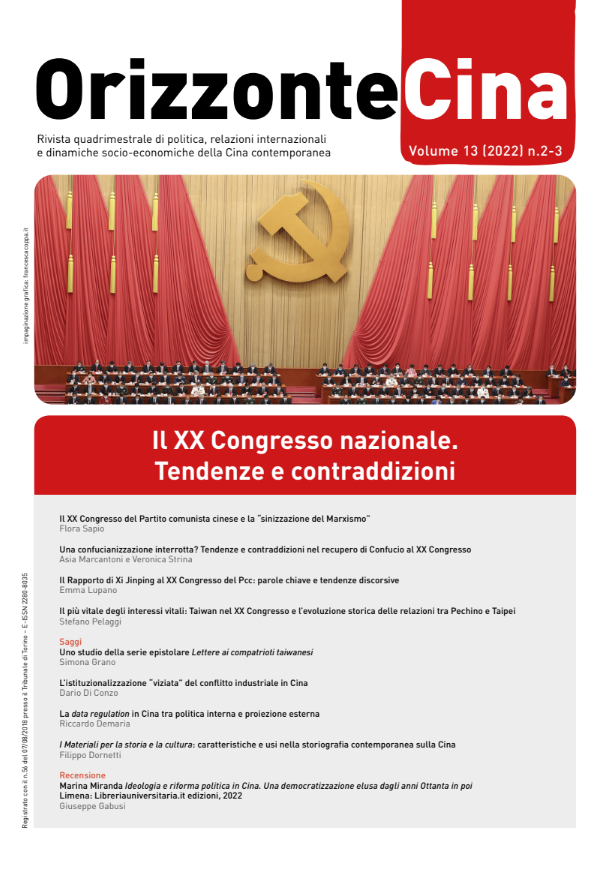The 20th National Congress of the Chinese Communist Party and the "Sinification of Marxism"
DOI:
https://doi.org/10.13135/2280-8035/7430Abstract
The twentieth National Congress of the Chinese Communist Party has placed a notable emphasis on the “sinification of Marxism”. Understood as the “integration of Marxism with the specific realities of China”, the “sinification” was discussed in the second section of Xi Jinping’s report, before the unveiling of China’s economic, organizational, social, and environmental priorities for the next five years. In the history of the Chinese Communist Party, such an attention to the “sinification of Marxism” has only a single, similar precedent dating back to 1938. The present article considers the “sinification of Marxism” as a key element within the ontology of political concepts underpinning China’s domestic governance system. This methodological move allows to retrace the key phases of the creation, demise and revival of the “sinification”, and to assess the role it plays today in China’s domestic and foreign governance. The “sinification of Marxism” does not have the goal to distribute or redistribute resources or opportunities. Neither was this concept revived to regulate or to modify the behavior of individuals, economic entities, and institutions. The issues at stake behind the process of “sinification” operate at the highest level of policy. They concern a fine-tuning of the relation between the government and Chinese society, and an adjustment of the ties that bind China and its international partners. The “sinification of Marxism” sets the main frame within which domestic and foreign policy may be negotiated and defined and attempts to shape the spaces where such processes of negotiation may occur.


